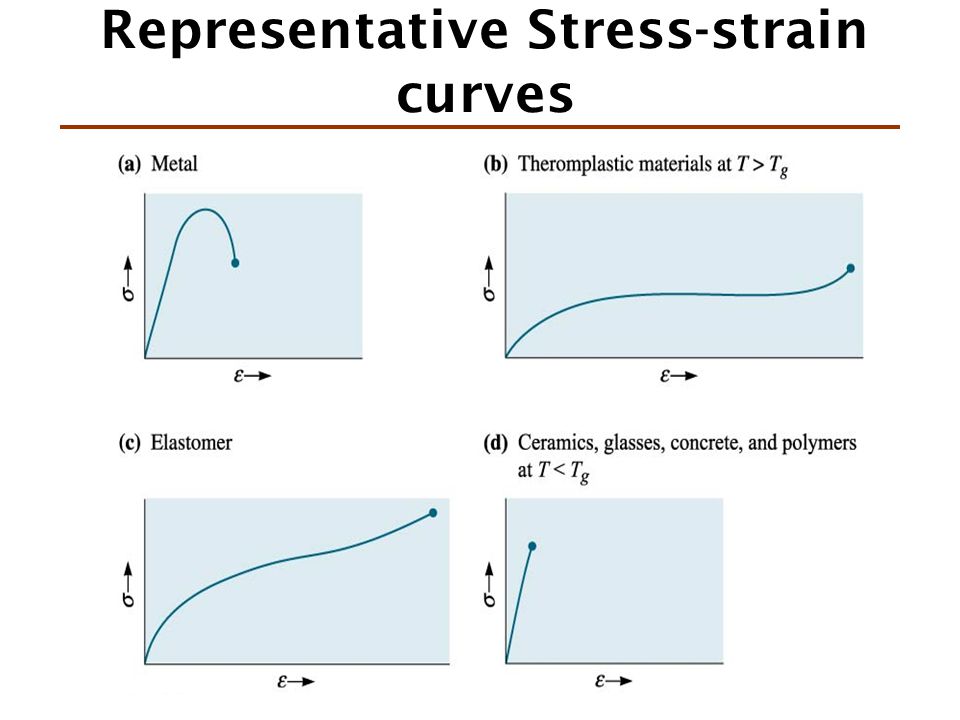Many ductile materials including some metals polymers and ceramics exhibit a yield point.
Stress strain curve of metals ceramics and polymers.
Metals and its alloys contain atoms that are arranged in orderly manner.
In this the stress is plotted on the y axis and its corresponding strain on the x axis.
Approximate by the area under the stress strain curve brittle fracture.
Based on the mentioned properties.
Low carbon steel generally exhibits a very linear stress strain relationship up to a well defined yield point fig 1.
Primarily differences are due to their different chemical bonding properties homework 1.
For brittle ceramics a three point bending apparatus shown in the figure below is used determine the stress strain behavior and the measurement results are used to calculate an equivalent modulus of elasticity.
The yield point is the maximum of the stress strain curve the weird circle symbol.
Stress strain curves for two brittle materials.
Elastic energy ductile fracture.
The stress shown in is an example of a textfigure 6 2 book stress strain curve.
Difference between metals ceramics and polymers with respect to modulus and tensile strengths the modulus values for highly elastic polymeric materials are lower than those of metals.
After plotting the stress and its corresponding strain on the graph we get a curve and this curve is called stress strain curve or stress strain diagram.
Elasticity ductility and tensile strength those four materials can be simplified by these definitions.
Plasticity happens when the atoms slip when they break bonds and reform new ones.
In reality not all stress strain curves perfectly resemble the one shown in strain figure 6 2.
While some of the stress strain curves for polymers might look similar to ones for metals polymers are mechanically different than metals or ceramics.
A typical stress strain curve would look like figure 6 2strain curve.
Stress strain curve is the plot of stress and strain of a material or metal on the graph.
Stress strain curves for metals ceramics and polymers objective we are interested about studying and comparing stress strain curves of metals ceramics and polymers.
Metallic bonding is great for this sort of re bonding which is why metals are usually ductile.
A highly elastic polymer may stretch over 10 times the original length before breaking while a metal might elastically stretch 10 of the original length elastically and may stretch plastically to double the original length before reaching its fracture point.
Elastic plastic energy very small toughness unreinforced polymers engineering tensile strain ε engineering tensile stress σ small toughness ceramics large toughness metals adapted from fig.
This stress curve is typical for ductile metallic elements.

